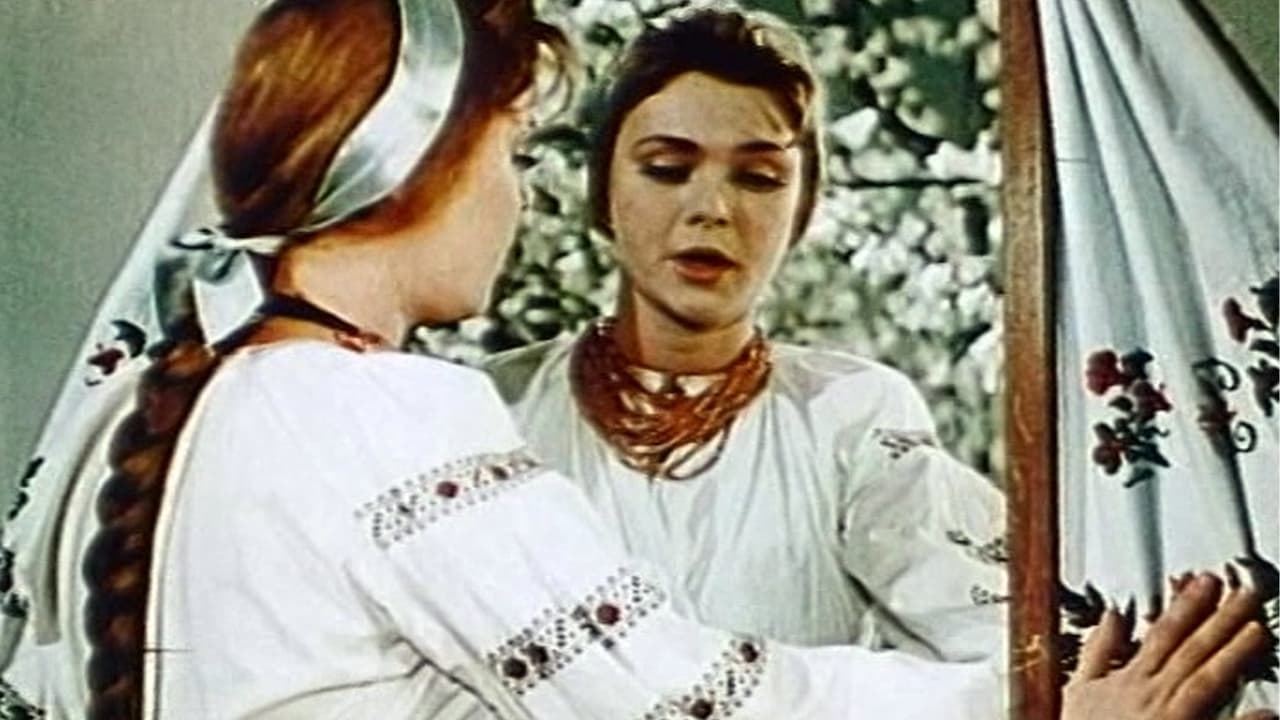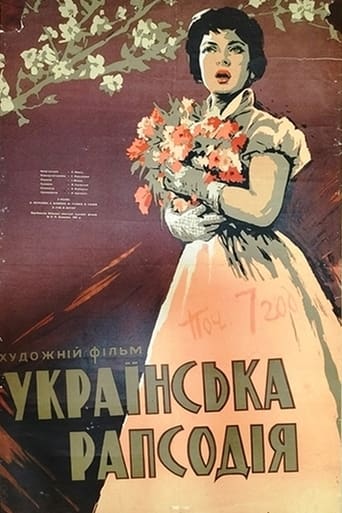

...said Fred Kite of similar films. However, it's an early film by Sergei Paradjanov and there can't be many films with more contrast between script and direction. The script is a banal pile of clichés, but it is filmed with sumptuous, leisured joy in vision and visual effects, often showing what Paradjanov would do later- an overhead shot of the escaped Anton stumbling into a church, or soldiers in a destroyed theatre listening to The Moonlight Sonata and long shots tracking characters. There is a continual clash between the unreality of genre and the non-realism Paradjanov adopted later.The film opens as Oksana, who has just won a contest for singers in Paris just after WWII, and Anton, JUST released as a P.O.W. in Germany, travel back to the Ukraine on different trains and flashbacks show how they got to be where they are.An important aspect of the film is the power of music- Oksana, who is seen as as much a healer as a singer as when she is a nurse, the organist and his son who hide and protect Anton, the frequent performances of music (originally the film was supposed to showcase performers from a local conservatory, but Paradjanov transformed it), Vadim, who persuades Oksana to leave the village and go to a conservatory and ends up as a village teacher- are all transfigured by their association with music. Indeed, the story's own value is undercut by music- Oksana is at a ballet of Peer Gynt, explaining the plot to a blinded soldier. At the climax the abandoned Solveig imagines that Peer has come home and they dance joyously, but- as Oksana says, "It's only a dream.", which emphasises the unreality of her own meeting with Anton a few minutes later.The other key image is railways and rivers- made explicit just before the end in Oksana's voice-over, but built up to by shots of boats floating on the Dneiper (one shot of a garland of flowers floating downstream is exactly echoed in Andrei Rublev), a leisurely rural idyll contrasted with trains rushing past ruins and shots of rushing rails and sleepers.It isn't Paradjanov at his peak- though he had a much bigger budget for extras and effects here, which he uses well, if sometimes conventionally- and he's still learning to be Paradjanov, but it's worth watching for its beauty and its other qualities- avoidance of the obvious is one: Paradjanov's Paris has no Eiffel Tower or Arc De Triomph.
... View More